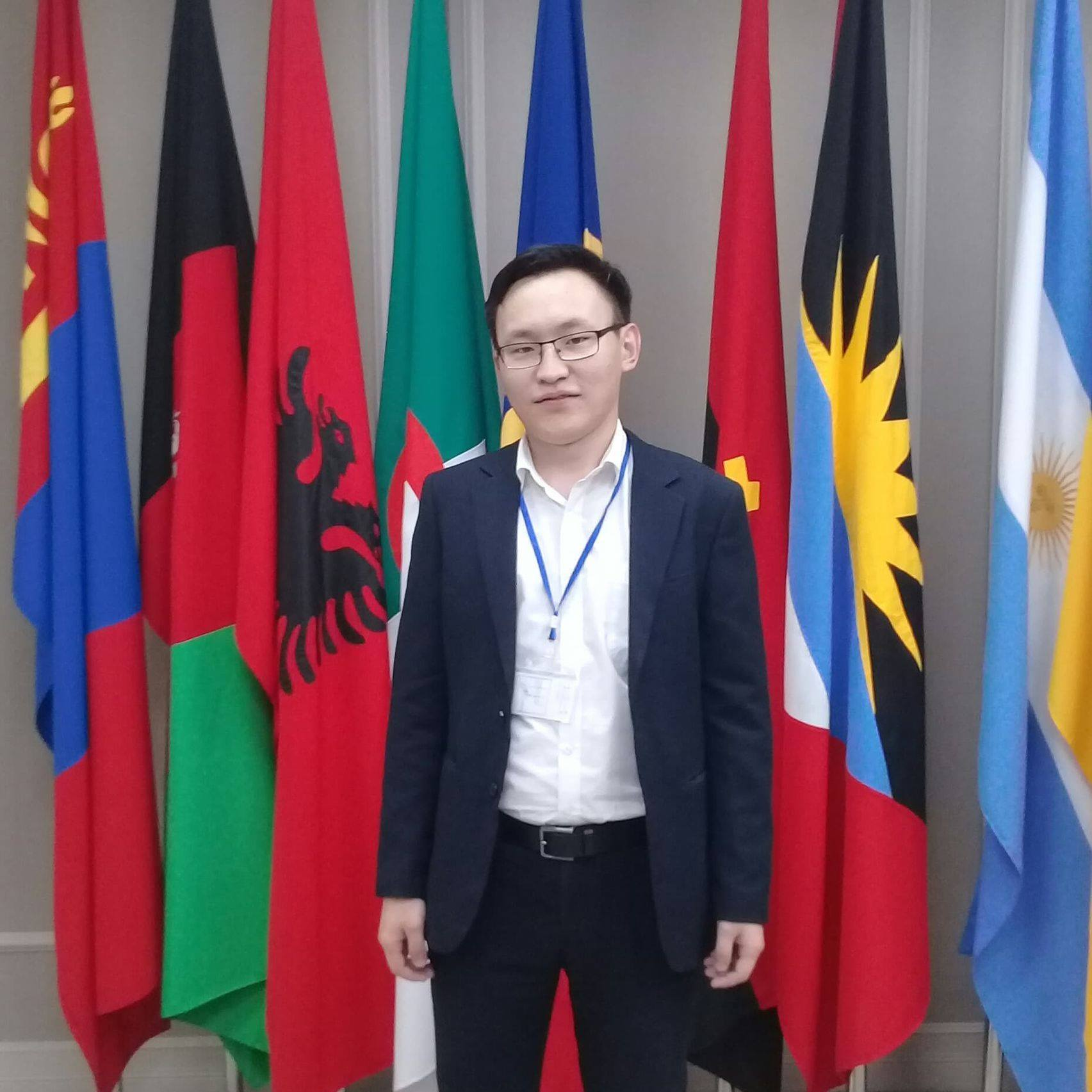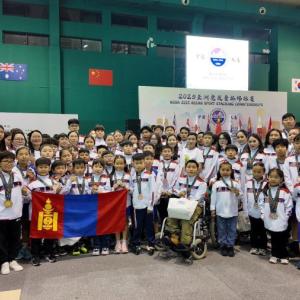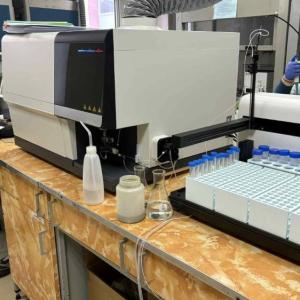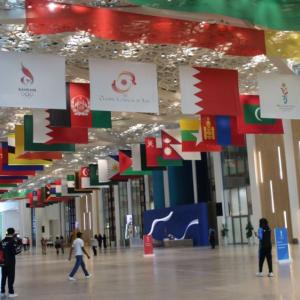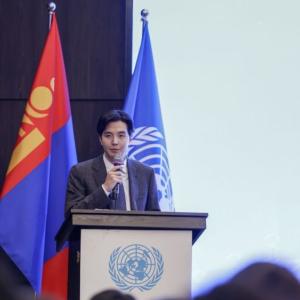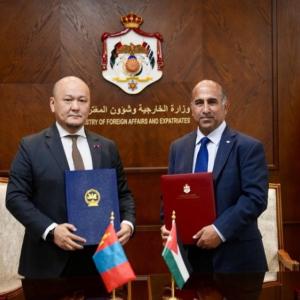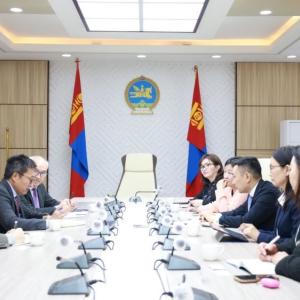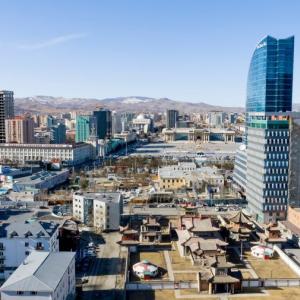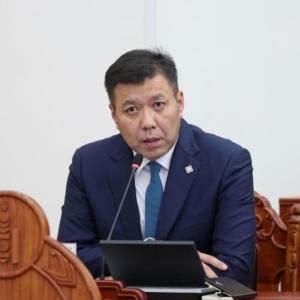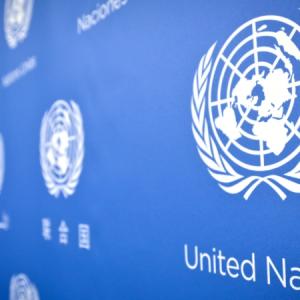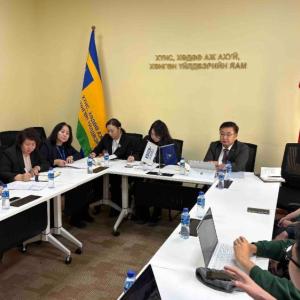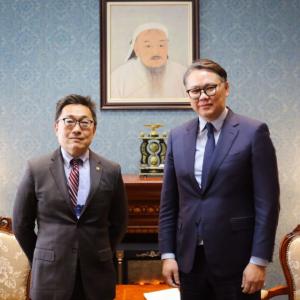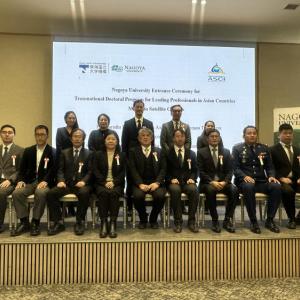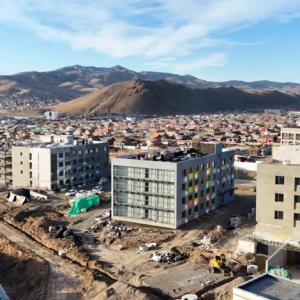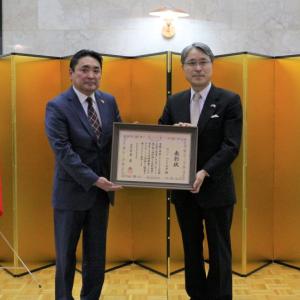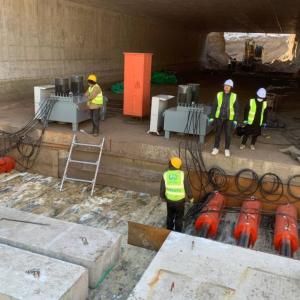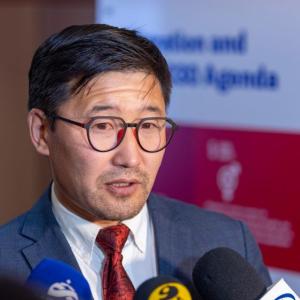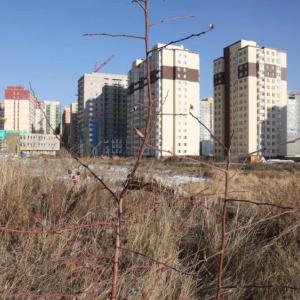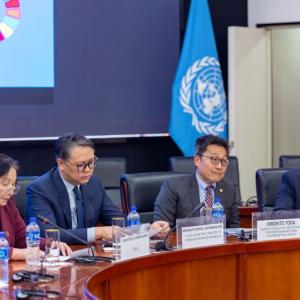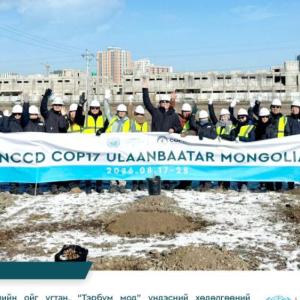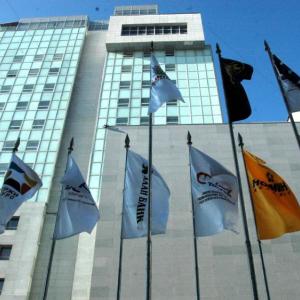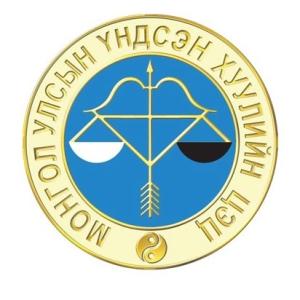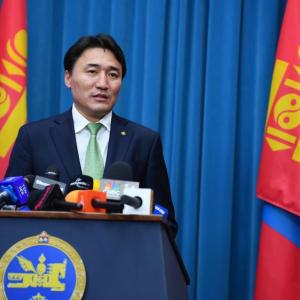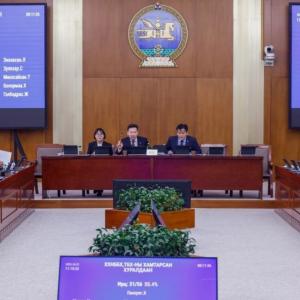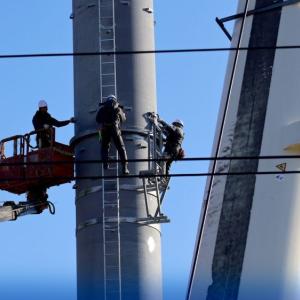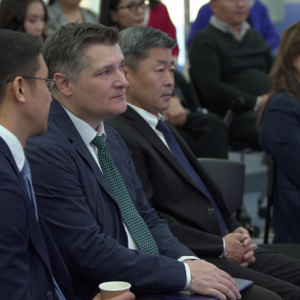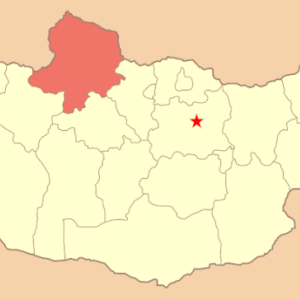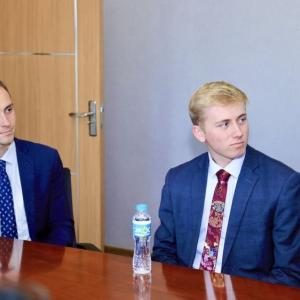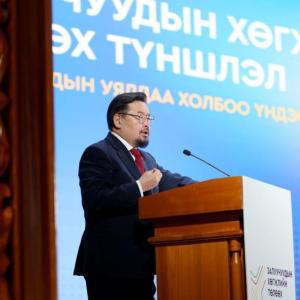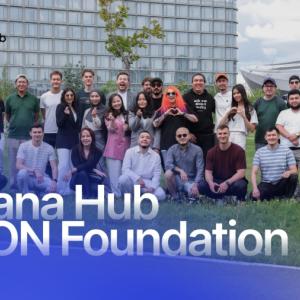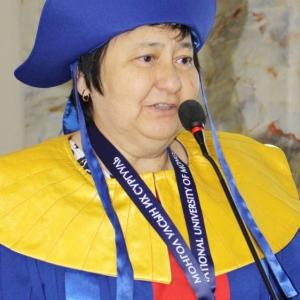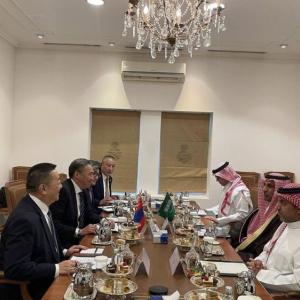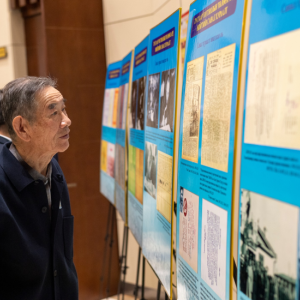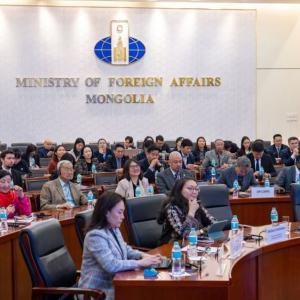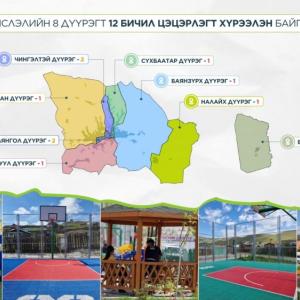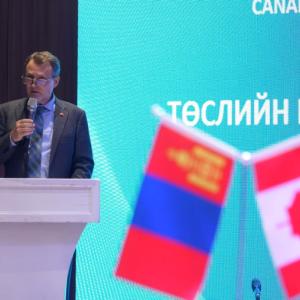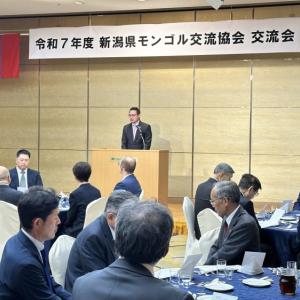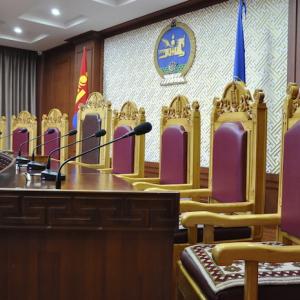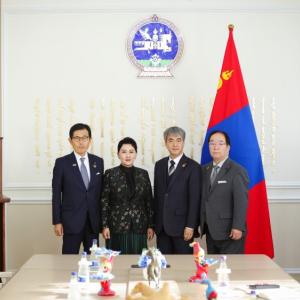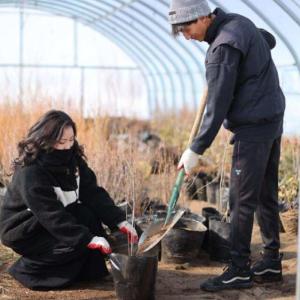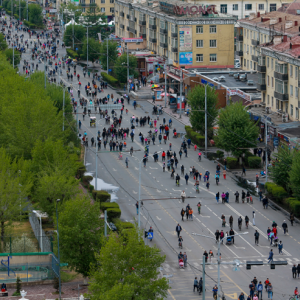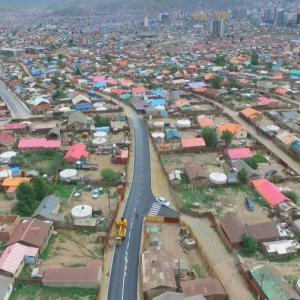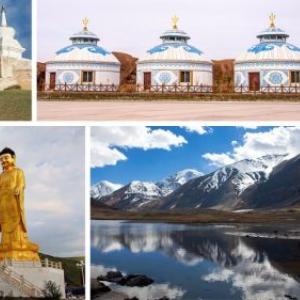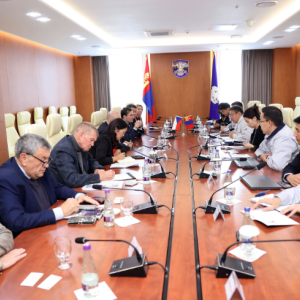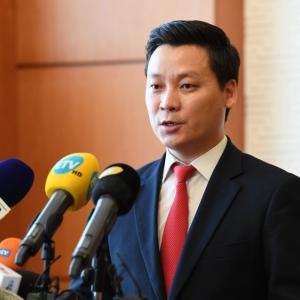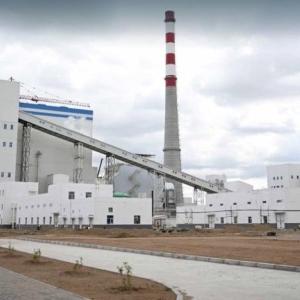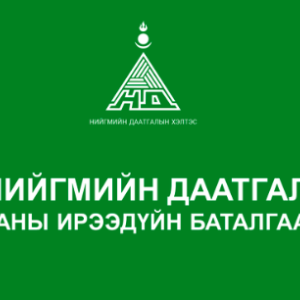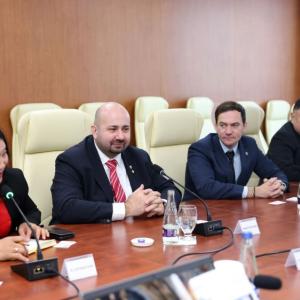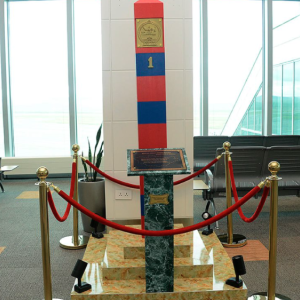Ban Ki-Moon: We Have No “Plan B” Because There is No “Planet B.” Limiting Carbon Emissions is the Only Way For Our Survival
Politics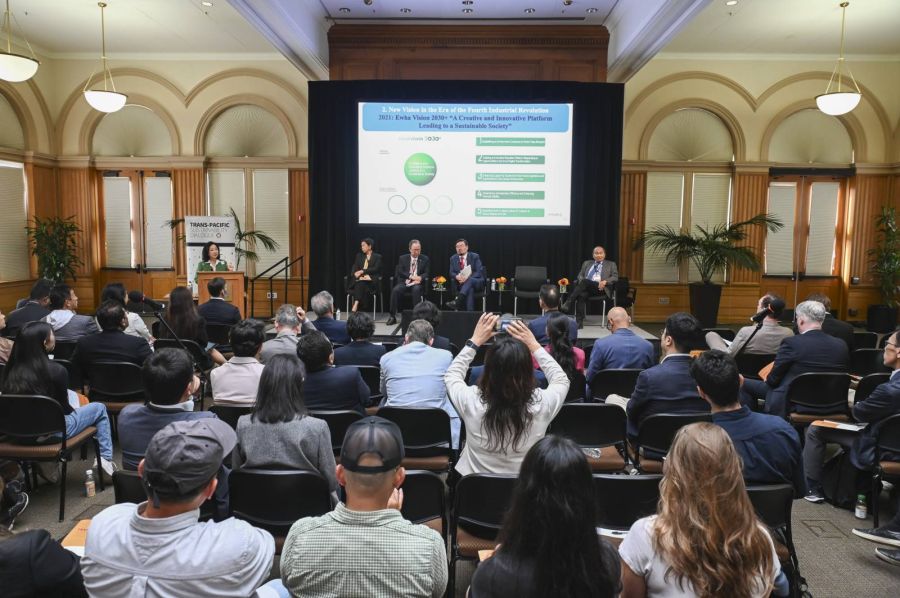
Ulaanbaatar, October 25, 2024 /MONTSAME/. Mr.Zandanshatar Gombojav, the Chief of the Office of the President of Mongolia, attended the third annual Trans-Pacific Sustainability Dialogue (TPSD) organized at Stanford University between October 10-11, 2024. Organized by the Walter H. Shorenstein Asia-Pacific Research Center (APARC) at Stanford University and the Ban Ki-moon Foundation for a Better Future, this year's dialogue focused on promoting inclusive and sustainable industrialization, fostering innovation, and building resilient infrastructure—the vision encompassed in SDG 9.
APARC and the Ban
Ki-moon Foundation launched the TPSD
initiative in 2022 to fast-track the United Nations-adopted 2030 Agenda for Sustainable Development
and its underlying 17 Global
Goals. This year’s event follows the momentum generated in previous
dialogue gatherings held in Asia, most recently the 2023 TPSD in
Seoul on energy security (SDG 7) and its last sub-regional
dialogue, and the Trans-Altai Sustainability Dialogue 2024 held in Mongolia on
peace, justice and strong institutions (SDG 16).
"The 2024 TPSD
offered a unique platform for cross-sector leaders to highlight where
interventions are most urgently needed to close disparities in achieving SDG 9
and assess best practices to expedite progress,” said Stanford sociologist Gi-Wook Shin,
the William J. Perry Professor of Contemporary Korea and director of APARC.
“With Stanford’s innovation ecosystem, industry collaboration, and commitment
to accelerating interdisciplinary solutions to global challenges, there is no
better place to pursue this work."
At
the Dialogue, Francis Fukuyama highlighted that issues facing climate policy
are not the policy itself but its implementation. He stated “It is difficult to
implement these policies due to the political differences of each country,
especially if that country’s political system is lagging behind. No mechanism
exists for its implementation. Political will is required at the national level
of countries. It is important to focus on institutional and political will and
consult with the public when implementing policies on the climate.”
The
Eighth Secretary General of the United Nations Ban Ki-moon mentioned that SDGs
require political commitment. Mr. Ban stated “Climate change is a binding
force. Challenges move faster than solutions. We have no “Plan B” because there
is no “Planet B.” Limiting carbon emissions is the only way for our survival.
This is the first case in our history. To overcome this challenge, everyone in
the world must work together. We have to join together, hand in hand. There is
no single country that can overcome this challenge alone. Collaborations
between academia create meaningful changes for innovation. International
collaboration is needed to advance academics. We must simply work together.
Reality is tough. Let us change others. The true key to accelerate SDGs is
harmony.”
Chief of the Office of the President of Mongolia Zandanshatar Gombojav highlighted the importance of political leadership in fostering sustainable innovation through legislation. Mr. Zandanshatar stated “Mongolia’s legislative framework is instrumental in promoting innovation across various sectors. Legislation is a “Catalyst for Innovation.” The State Great Khural of Mongolia (Parliament) undertook significant steps in enhancing the legal environment for innovation by adopting package laws on science and education. As Mongolia diversifies its economy and strengthens knowledge-based sectors, these legislative measures are crucial for creating an environment where innovation can thrive, contributing to the country’s long-term economic growth and global competitiveness.”
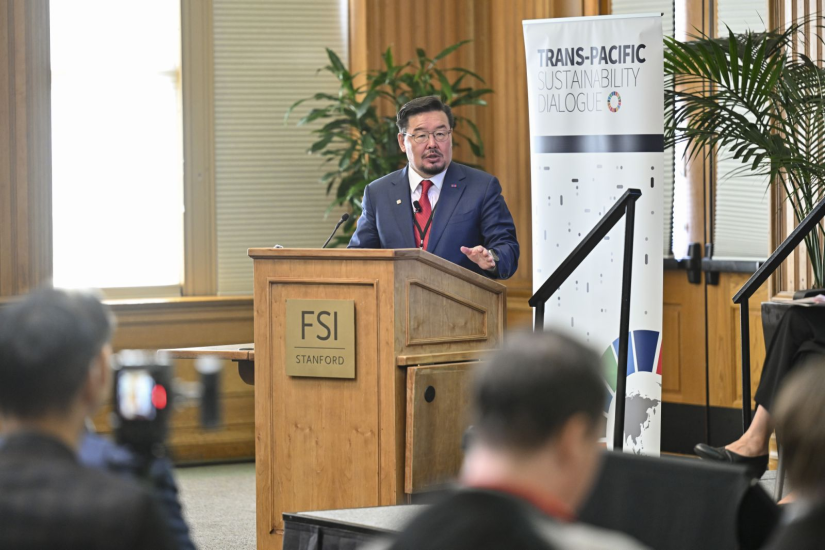
The
2024 Dialogue was organized successfully with the plenary sessions on The role
of world leaders in higher education and sustainable innovations, Promoting
climate change diplomacy across sectors, Catalyzing innovative energy
infrastructure financing in Asia and the Pacific, Advancing resilient infrastructure and
sustainable industrialization in the Indo-Pacific region, Integrating the value
of environment into policy and decision making for sustainable development and
Leveraging investments for Industrial innovations and sustainable
infrastructure.
By
gathering social science researchers and scientists from Stanford University
and across the Asia-Pacific region alongside government officials, experts from
the private and public sectors, and emerging leaders, the dialogue initiative
aimed to spur transnational research and policy collaborations to expedite the
implementation of the SDGs.
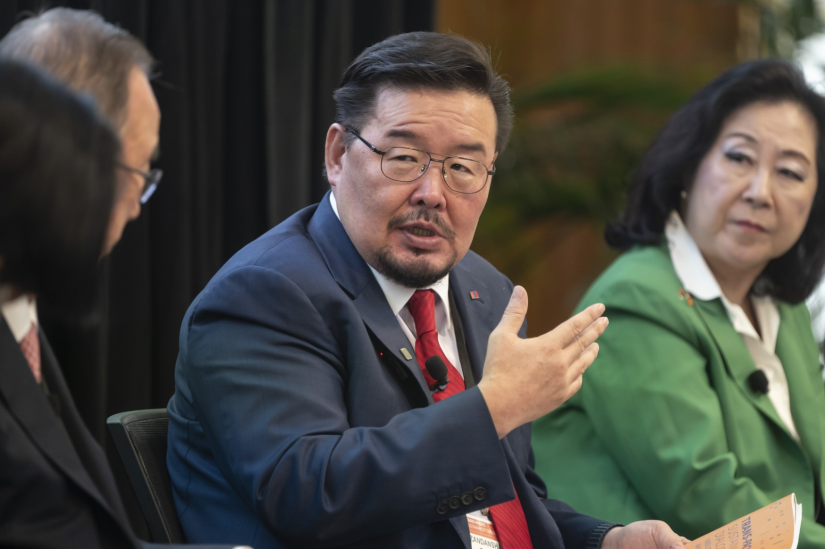
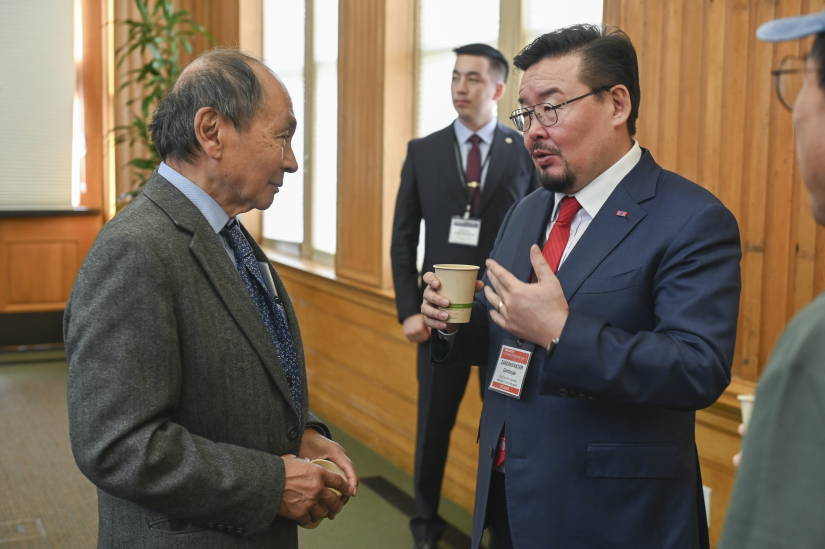
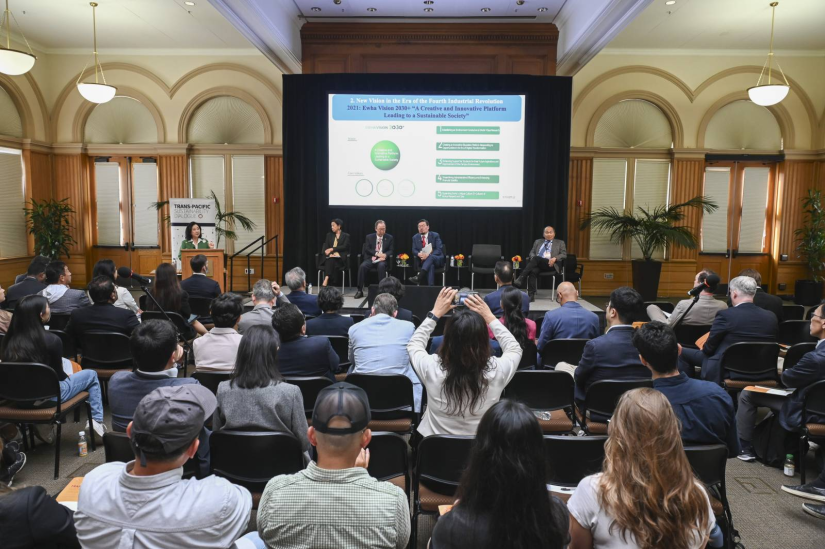
Photo caption:
From the left: Jean Oi, Director of the China Program at Shorenstein APARC, Director of the Korea Program, Senior Fellow at the Freeman Spogli Institute for International Studies, Professor of Sociology, and the William J.Perry Professor of Contemporary Korea, Stanford University
Ban Ki-Moon, the Eighth Secretary General of the United Nations and the Chairman of the Ban Ki-Moon Foundation for a Better Future.
Zandanshatar Gombojav, the 7th and 8th Chairman of the State Great Hural (Parliament) of Mongolia and the Chief of the Office of the President of Mongolia
Eun Mee Kim, The 17th President of Ewha Womans Univesity, Professor in the Graduate School of International Studies, Director of the Ewha Global Health Institute for Girls and Women, former Dean of the Graduate School, former Dean of the Graduate School of International Studies, and former Director of the Institute for Development and Human Security, Ewha Womans University
Francis Fukuyama, Olivier Nomellini Senior Fellow at the Freeman Spogli Institute for International Studies, Director of the Ford Dorsey Master's in International Policy, Research Affiliate at the Europe Center, and Professor, by Courtesy, in the Department of Political Science, Stanford University
 Ulaanbaatar
Ulaanbaatar





